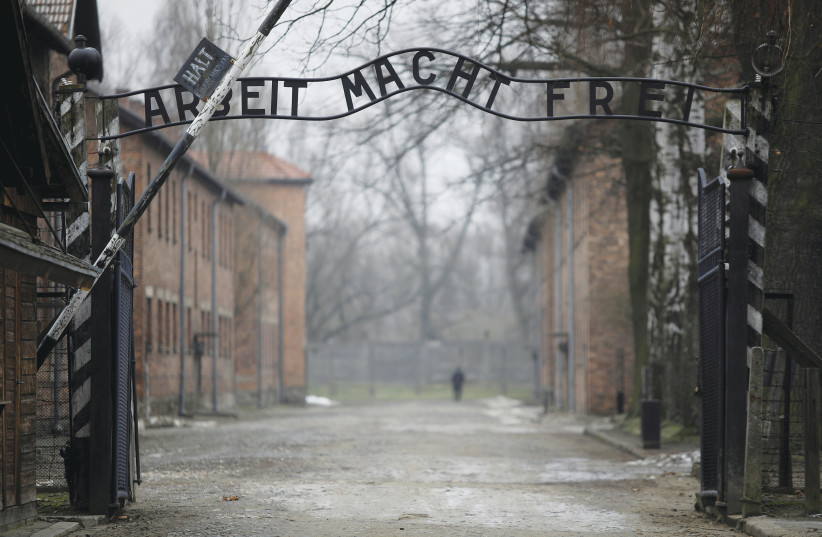As an elementary school student at a Jewish day school in the New York area, I was brought, along with the rest of the students in my grade, to a Jerry-Springer-like television show where the producers had brought together children from all different types of American life to compare and contrast their American experiences. Our Jewish school was placed next to an African American school. The students began talking and soon we were comparing which group had the worst past.
We began comparing American slavery of African Americans and the Holocaust. We were too young to recognize there could be no greater apple and orange comparison than two tragedies and injustices as great as the Holocaust and slavery. I can’t speak to the experience of the African American students, but the discussion gave my friends and I our first look at the African American experience.
American progressive society tells me that as a male with white skin, having grown up in the United States, I had privilege not enjoyed by females or men with black or brown skin. As an Ashkenazi male with white skin that grew up in the United States and immigrated to Israel, Israeli progressives tell me that I am privileged.
I am told my privilege was unfairly given to me and I should feel somewhat guilty over my privilege. Society’s message is that I need to work hard to erase the privilege I enjoy – but did not merit – by giving advantages to the “underprivileged,” even if it’s unearned by merit. I have power they don’t enjoy, and I must even the power imbalance by giving up some of my privilege.
Looking at a picture of me, I look like the classic American WASP. I have light brown hair and fair white skin. I speak with an American accent and grew up as a middle-class American in a classic suburban small town. Yet, I’m not white in the sense that progressives on the “power imbalance trail” qualify people as white. I’m not the classic WASP that came to America from Europe, enslaved blacks from Africa and enjoyed advantages other Americans could only dream of for themselves.

The writer's grandfather's story
My grandfather grew up in a small Polish town. He was a poor young man, one of eight siblings. He had married relatively young, had two children and worked as a tailor. Life wasn’t great but it was fine. Then came September 1939 and the German invasion of Poland. As the Germans took over Poland and swept through the cities and towns, they gathered the Jews. All skilled laborers were forced to work for the German war machine. As a tailor my grandfather had a skill the Germans needed.
MY GRANDFATHER became a slave for the Germans in the 1940s. After watching his parents, siblings, wife and two children gassed to death and their bodies incinerated, he suffered through Auschwitz. His life ripped apart, he was liberated and found refuge as an immigrant with nothing to his name in America in the late 1940s. He got remarried, raised a stepson, and had my father. They slowly brought themselves up from poverty to middle class.
My father was the first in his family to attend college, managed a factory for a stable livelihood and brought me up in a healthy environment that allowed me to succeed. My grandfather, my father and I, weren’t given any advantages anyone else in America didn’t enjoy.
After a healthy upbringing in America, I came to Israel to attend a gap-year yeshiva. I fell in love with Israel and realized my parents’ and grandparents’ dream of returning to our ancestral home and living in Israel. For two thousand years our people pined, prayed and begged to return to Israel but were always denied the opportunity. Finally, after two millennia, the Jewish people established a Jewish state in the Land of Israel, how could I not return home?
Although I came to Israel with much more than many immigrants from Arab lands in the 1950s, the Soviet Union in the 1990s or Ethiopian Jews at the end of the century, I still struggled with Israel’s different culture, language and high taxes combined with lower salaries. I was far from privileged. As happy as I am to live in Israel, living here hasn’t been without significant challenges.
The story of our people coming to Israel and establishing a state after the hardships of Arab persecution and a German-led Holocaust is reminiscent of the Jewish people coming to Israel after the Egyptian slavery of biblical times. In the Egyptian story, much like our own, a generation of children and grandchildren of slaves, fought off enemies, built infrastructure in a desolate land, and established a state.
Today’s Zionists are much the same; they are children and grandchildren of slaves; survivors of national trauma who rehabilitated themselves to be stronger and rebuild their own national homeland. Zionist Jews are anything but privileged.
Confusing the Jewish story with one of “white privilege” is absurd and patently false. For a theory on a people to be so incorrect requires willful ignorance or blatant bias. Mistakes this colossal are never accidental. Accusations of Jews as privileged simply because they’ve applied their talents to put themselves in a better position doesn’t mean there’s something nefarious about their power or any imbalance with other people. Demonizing Jews for having power is antisemitic and the Jewish nation will pay it no heed.
The writer is a senior educator at numerous educational institutions. He is the author of three books and teaches Torah, Zionism and Israel studies around the world.
